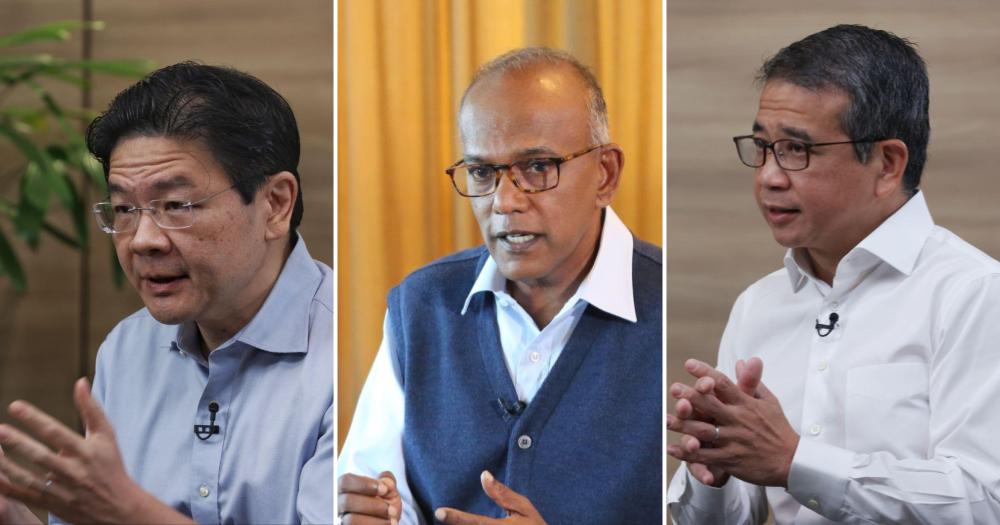Follow us on Telegram for the latest updates: https://t.me/mothershipsg
You might have heard that Section 377A of the Penal Code will be repealed, following Prime Minister Lee Hsien Loong's comments at National Day Rally 2022.
Along with the repeal, PM Lee said the Constitution would be amended to protect the definition of marriage as being between a man and a woman.
As part of the explanation of the government's thinking behind the decision to repeal, PM Lee said attitudes in society toward 377A have shifted "appreciably" since the last major debate on it in 2007, such that there is greater acceptance of gay people in Singapore.
He also said there is a "significant risk" that 377A would be ruled unconstitutional in a future court challenge, and not repealing the section would leave this risk unaddressed.
You can read PM Lee's comments in full here.
Further explanation of "significant risk"
On Monday (Aug. 22), the government provided further explanation of the "significant risk", via media interviews with ministers Lawrence Wong, Edwin Tong, and K Shanmugam.
Wong is Deputy Prime Minister and finance minister, Tong is minister for culture, community and youth as well as the second minister for law, and Shanmugam is home affairs and law minister.
In their interview, Tong and Wong pointed out that following the most recent court challenge involving 377A, the Attorney-General advised that the section could be held unconstitutional and struck down.
Why is it risky for 377A to be ruled unconstitutional?
Shanmugam provided further details of that court judgment and why the government identified "significant risk" following the decision.
He explained that the Court of Appeal refrained from making a ruling on the question of whether 377A breaches Article 12 of the Constitution, which includes a provision that "all persons are equal before the law and entitled to the equal protection of the law".
Shanmugam explained that as part of that recent court case, the Court of Appeal also considered the questions of whether 377A breaches other articles of the Constitution (Article 9 and Article 14), and dismissed challenges on those grounds.
On Article 12, however, the Court of Appeal left things open. As Shanmugam explained:
"The Court of Appeal expressly said that they are not going to rule on whether section 377A breaches Article 12, and they said that there were two ways in which Article 12 could be applied.
Under one of the two ways, if you read the judgement, the Court of Appeal essentially said that s377A could be unconstitutional, it could be in breach of Article 12.
The Court added that they did not have to decide on the right test now. They left it to “a suitable occasion in the future”, which in my view means they can, and probably will, decide it in future."
Shanmugam also summarised this point, as follows:
"In summary, [the Court of Appeal] dismissed the challenges on Articles 9 and 14, but left open the questions on Article 12, and signalled that section 377A could potentially be unconstitutional, and they said they can deal with it in the future."
Definition of marriage currently open to constitutional challenge
Shanmugam also explained that the current laws in Singapore leave it open for the definition of marriage to be challenged in the courts on constitutional grounds, just like section 377A has been challenged.
He specifically identified Article 12, and said a court challenge could seek a ruling that the current definition of marriage goes against Article 12 and is therefore unconstitutional.
He said:
"It can be asked... why should a marriage only be between a man and a woman? Why shouldn't it be possible for two men, or two women, to be married?
Someone could argue that marriage policies are in breach of Article 12 of the Constitution. And such arguments about marriage have been made elsewhere successfully."
Government's response to the "significant risk"
Tong explained the government's response to this "significant risk".
"We felt we cannot ignore this risk and do nothing. Because if that happens – if section 377A is struck down – our marriage laws will also come under challenge, on the same grounds."
This, Tong said, could lead to same-sex marriages being recognised in Singapore, which would in turn impact other laws and policies like those on adoption, public housing, school curriculum, advertising, and more.
"All these could come under challenge," said Tong, adding that "the overall look and feel of society" could change quickly if those challenges succeed.
"That is not what Singaporeans want to see, and nor would that be good for Singapore," he said.
Wong answered similarly, saying:
"Basically, if we were to do nothing, there is a risk that both section 377A, and the current definition of marriage, will be struck down.
That is a very real risk we have to take into consideration and that is why we cannot continue with the status quo."
Related stories
Top image credit: Ministry of Communications and Information (MCI) and Ministry of Home Affairs (MHA)
If you like what you read, follow us on Facebook, Instagram, Twitter and Telegram to get the latest updates.
